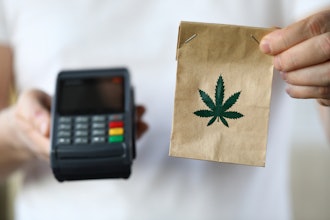
Leafly, an online cannabis information resource and marketplace, released a report detailing the unintended, damaging consequences that occur when local municipalities elect to “opt-out” of legal, regulated cannabis sales.
Developed in partnership with Whitney Economics, the report reveals the adverse consequences of opting out and explores why local regulation, not local prohibition, is the right way to handle cannabis.
Some states’ cannabis legalization laws allow local municipalities to establish specific regulations within cities and counties. According to the report, instead of regulating legal sales in ways appropriate for their community, it is increasingly common for local leaders to opt-out of local regulation, effectively creating an economic protection zone for illegal street sellers to continue business. This revival of prohibition at the local level exists even in communities that overwhelmingly voted in favor of legal cannabis at the statewide level.
“This report demonstrates that legal, regulated cannabis stores put illicit marijuana dealers out of business,” said Bruce Barcott, the report’s lead author and Leafly’s Senior Editor. “Fears surrounding local cannabis stores may prompt elected officials to prohibit cannabis companies in their towns. But adults in every community already purchase and enjoy cannabis, legal or not. The cities and counties that skip out on cannabis are essentially voting to keep their local illegal marijuana markets in business.”
“Access and taxes, those are the keys to customer migration to the legal market,” said co-author Beau Whitney, founder of Whitney Economics. “And right now we’re seeing illegal cannabis sales propped up by opt-out cities and counties.”
In addition to unintentionally supporting their town’s illegal marijuana dealers, the report found that when local leaders opt out, they also:
- Indirectly encourage adult consumers to purchase illegal products
- Put public health at risk by allowing the circulation of untested products
- Sustain illegal sales to local teens
- Turn away local jobs and tax revenue
- Continue fighting a losing War on Drugs
According to the report, California’s illegal street sellers still satisfy more than 50 percent of the state’s adult consumer marijuana demand, despite the legal market opening up four years ago. It’s no coincidence that 62 percent of the state’s municipalities have opted out of regulated retail sales.
This trend is also taking place in new markets that are opting out before sales begin. In New Jersey, where adult-use cannabis began earlier this year, 71 percent of local municipalities have opted out of legal sales. That has left the state’s adult consumers with few legal options. With only one store for every 358,000 residents, illegal street sellers still command more than 80 percent of the marijuana market.






















